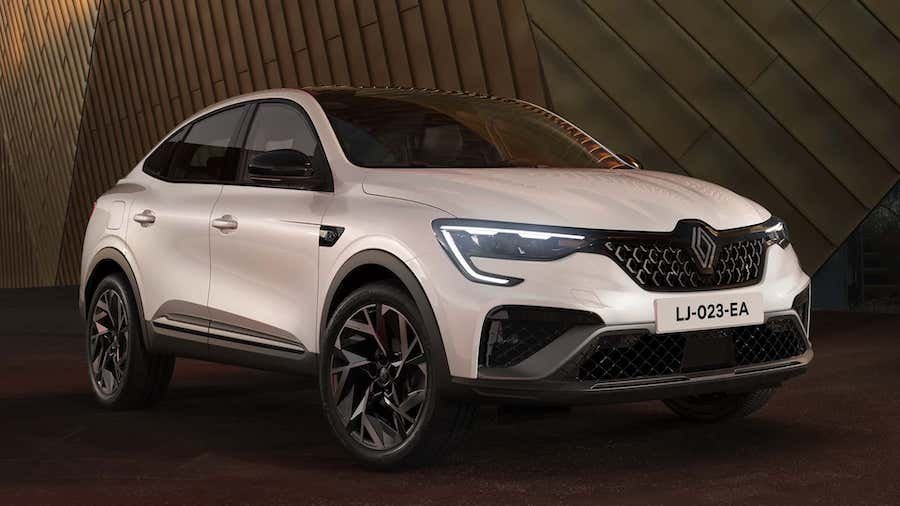2024 Renault Arkana Facelift Debuts With Esprit Alpine Flagship Trim

Also known as the Megane Conquest and XM3 depending on the market, the Renault Arkana was among the first mainstream coupe-SUVs to arrive in Europe. The swoopy compact car was launched in October 2020 and is already receiving a mid-cycle update. This subtle facelift builds upon the success of the original model, which has racked up 163,000 sales in Europe and a combined 240,000 units including the XM3 available in South Korea.
The 2024 Arkana is Renault's latest model to adopt the revised corporate logo, and comes with black, satin chrome, or dark chrome accents depending on the trim level. By the way, it'll be easier to choose your preferred version as the stylish crossover gets a simplified lineup with only flavors: Evolution, Techno, and Esprit Alpine. The latter replaces RS Line and serves as the range-topping version. Other subtle tweaks include partially tinted lights and dark accents replacing silver.
Exclusive to the Esprit Alpine are those fancy 19-inch wheels with a two-tone finish as well as Alpine branding also found on the logo adorning the front fenders. It also has a mildly updated front grille compared to the old RS Line. Stepping inside, the flagship trim gets a combination of red, white, and blue stitching on the door cards, along with a slate-like finish on the dashboard. The seats are wrapped around in a combination of faux suede and what Renault refers to as Eco Tep, with 10 percent of the composition using bio-sourced materials.
There aren't any changes underneath the hood where customers will get to pick from the same mild-hybrid gasoline engines with 140 and 160 horsepower from a turbocharged four-cylinder, 1.33-liter unit. The lesser version offers 260 Nm (192 lb-ft) of torque while the more potent one has 270 Nm (199 lb-ft). Stick to the base engine and the 0 to 62 mph (100 km/h) will take 9.8 seconds whereas the beefier one can do the job in 9.1 seconds.
These are joined by the E-Tech full hybrid setup with 145 hp obtained from a 94-hp, four-cylinder, 1.6-liter naturally aspirated gasoline engine working together with a 36-kW electric motor and a 15-kW starter generator. Renault fits a 1.2-kWh battery and says you can run on electric juice for up to 80 percent of the time in cities. Compared to a conventional gasoline engine, fuel consumption is reduced by as much as 40 percent.
On the flip side, the Arkana E-Tech is the slowest of the bunch, needing 10.8 seconds to reach 62 mph (100 km/h). It's also the heaviest, at 1,435 kilograms (3,163 pounds), whereas the two mild-hybrid models weigh 1,336 kg (2,945 lbs) and 1,347 kg (2,969 lbs), respectively. The full hybrid uses an E-Tech multi-mode automatic transmission compared to the seven-speed EDC (dual clutch) of the mild-hybrid variants.
Another downside to getting the E-Tech is the practicality penalty since the cargo capacity is reduced from 513 to 480 liters (18.1 to 16.9 cubic feet) with the rear seats in place. Fold them and the volume increases to 1,263 liters (44.6 cu ft) or six liters (0.2 cu ft) less than the mild-hybrid models.
Renault says it will begin to accept orders for the 2024 Arkana in Europe this summer.
